Seminar, Session 4: Artistic Photo
Last Saturday, we experienced another very interesting course session. We learnt a lot and even had a glimpse of what the professor is thinking for the future (stay or run to the end to read more)
You can see the previous seminar here
This time we discussed the lens itself and how it works.
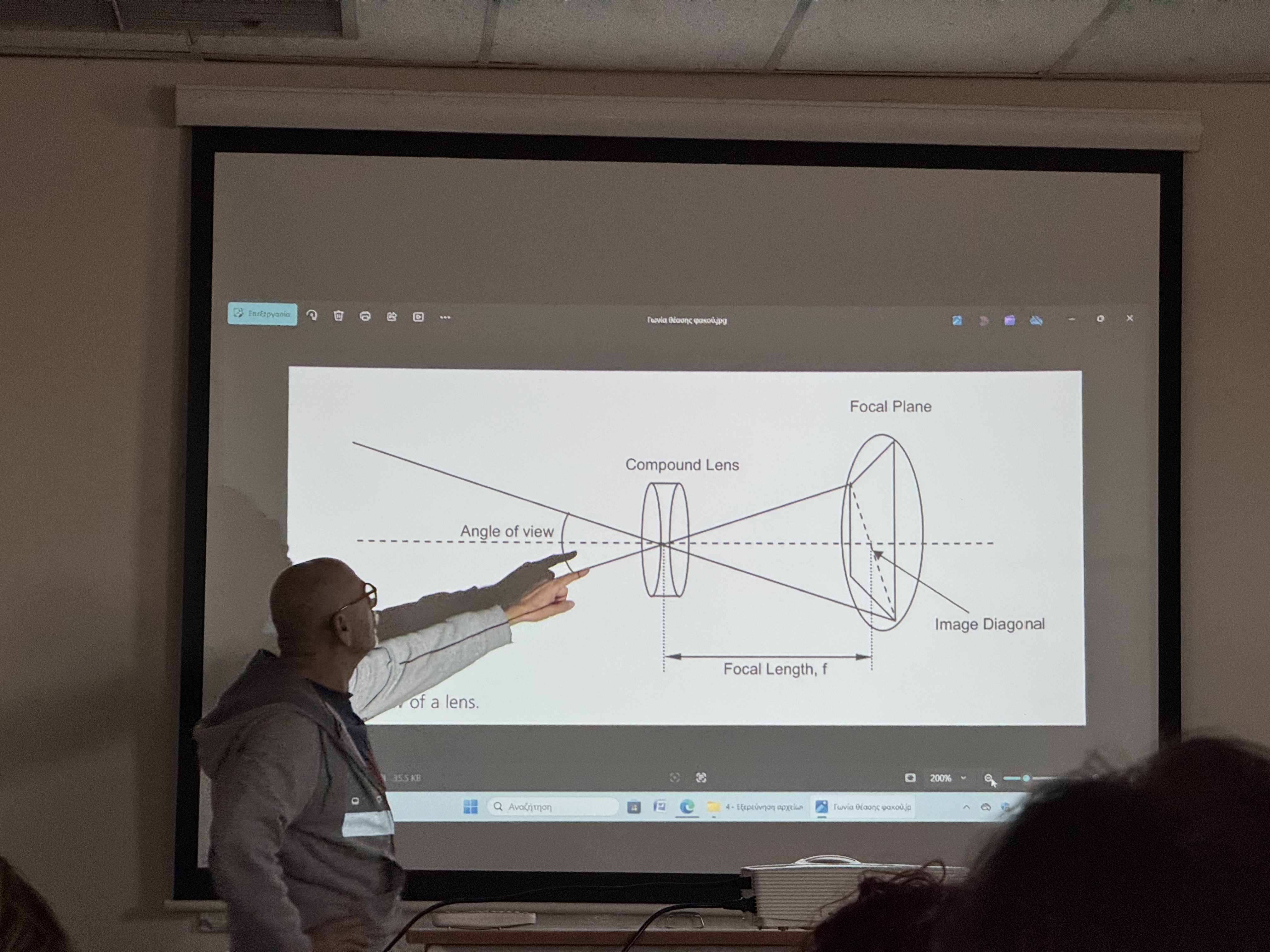
A photography lens uses a system of glass elements (a compound lens) to gather light and focus it onto the focal plane—where the camera’s sensor or film captures the image. The focal length of a lens (measured in millimeters) is the distance between the lens and the focal plane when the subject is in focus at infinity. It controls how “zoomed in” the image appears and influences both magnification and depth of field.
The angle of view—how much of the scene the lens captures—depends on the focal length and the image diagonal (the diagonal measurement of the camera’s sensor or film). A shorter focal length (like 24mm) gives a wider angle of view, while a longer one (like 200mm) gives a narrower view. Lenses are designed to match the image circle (the round area of light projected by the lens) to cover this image diagonally, ensuring the entire sensor is evenly exposed.
(with some online help)
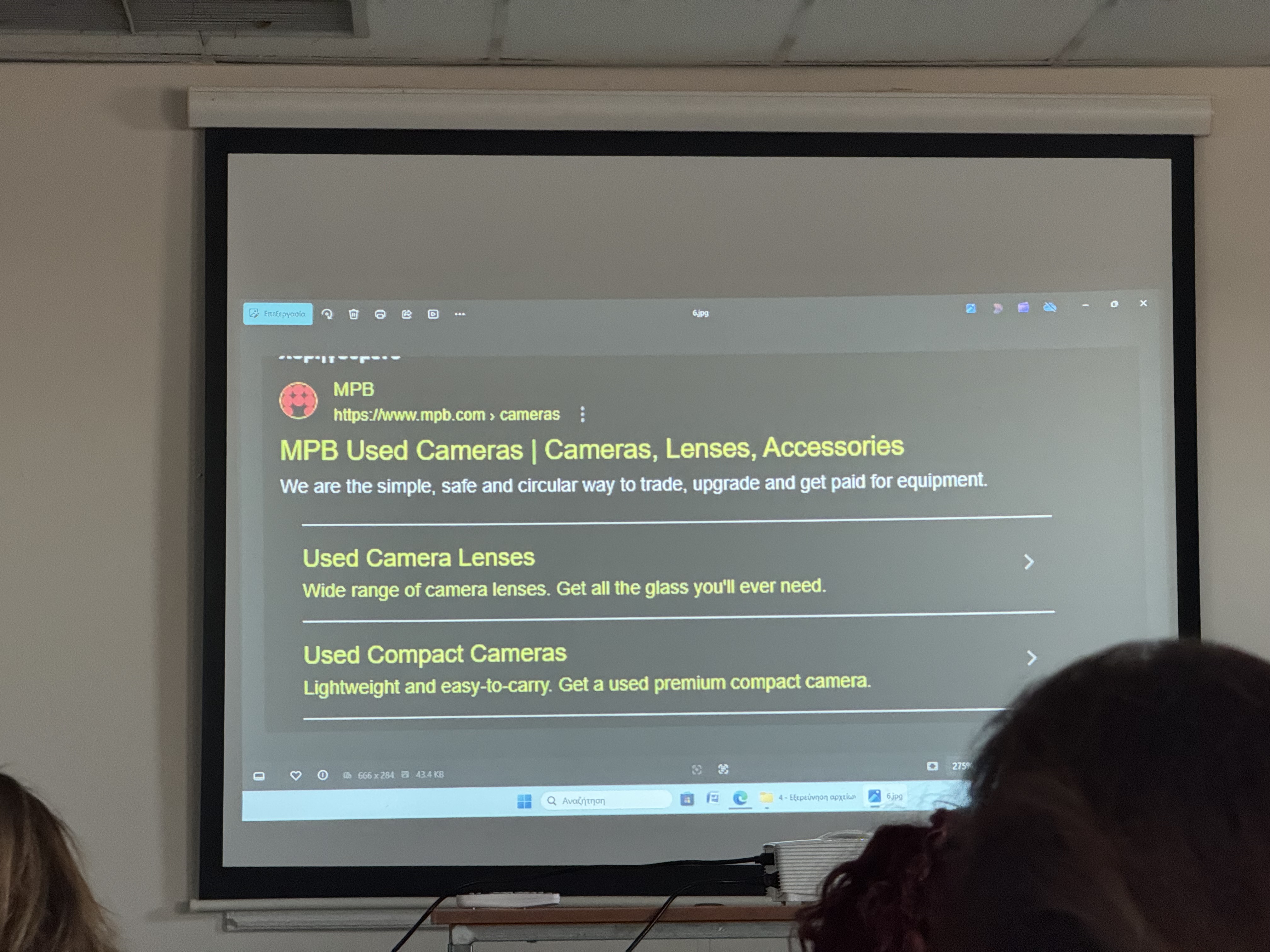
He mentioned that maybe someone will want to buy a camera instead of using the phone, so he suggested this website that has used cameras in good prices and with information about number of clicks.
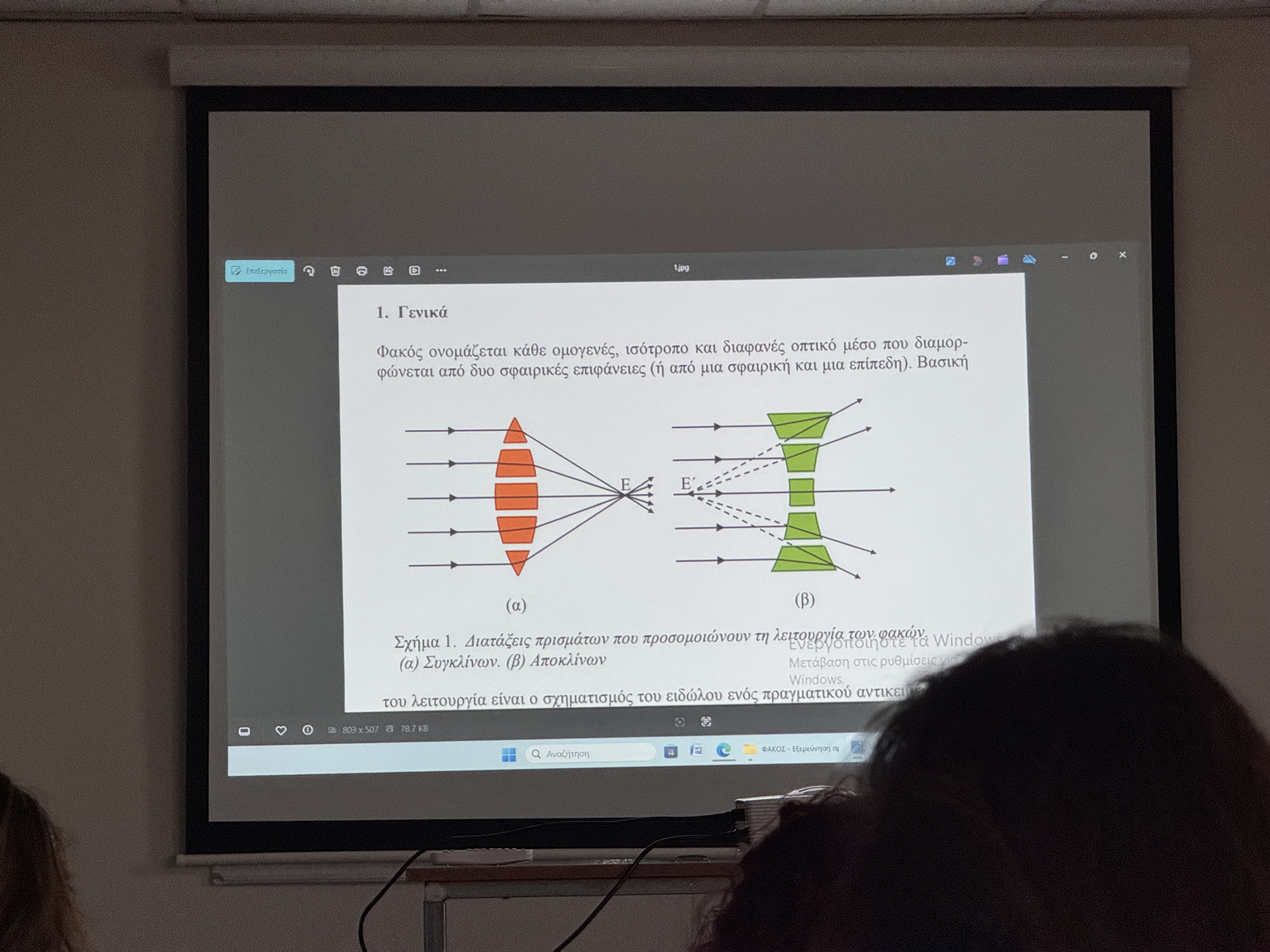
What is a lens:
A lens is a transparent optical element—usually made of glass or plastic—that bends (refracts) light to focus it or spread it out. It is made of two round surfaces (or from one round one and one as a layer)
It works because light changes speed when it passes from one material (like air) into another (like glass), causing it to change direction.
Before entering the course these is the amazing view that i lost, but I did earn in knowledge!
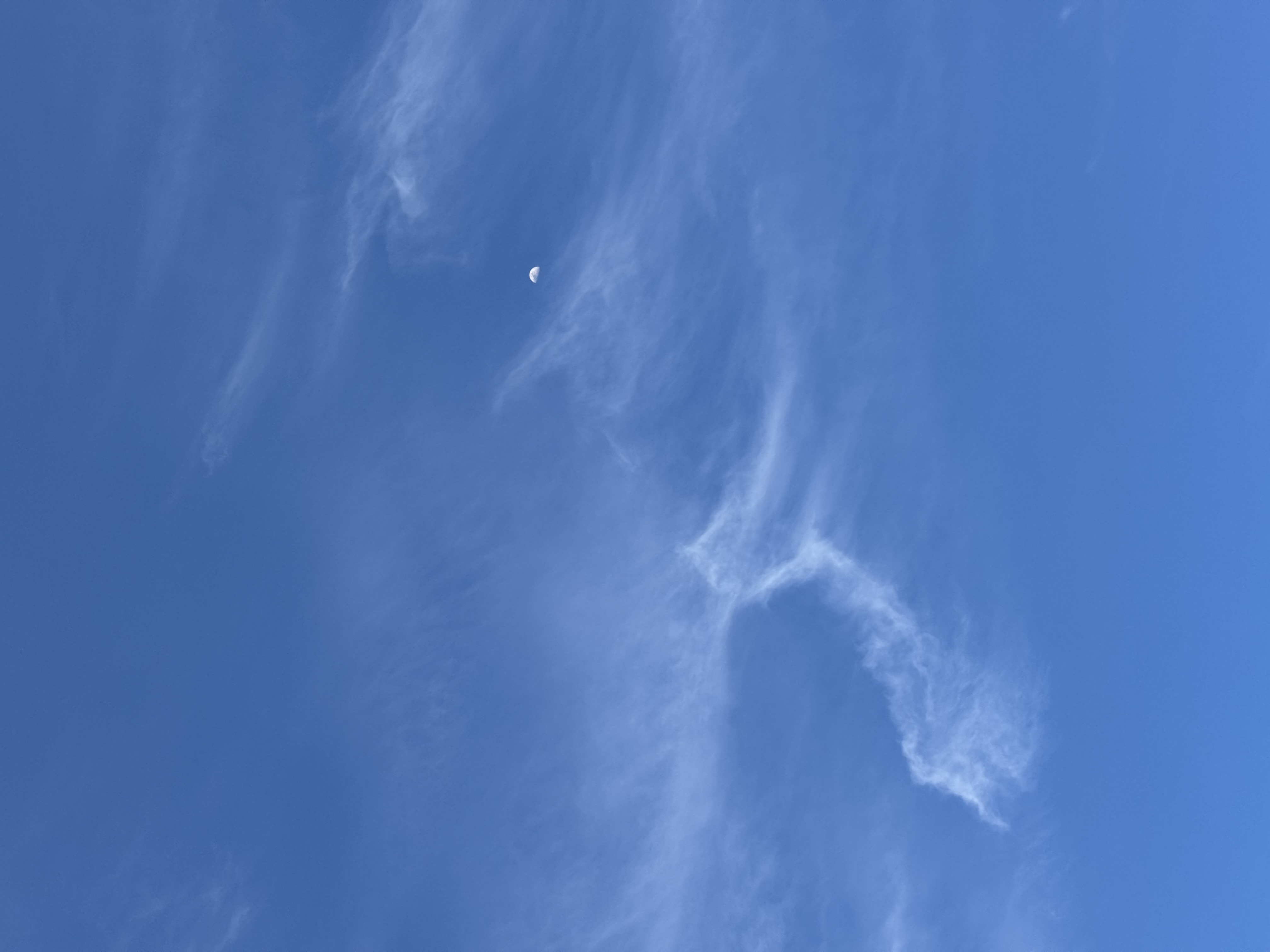 | 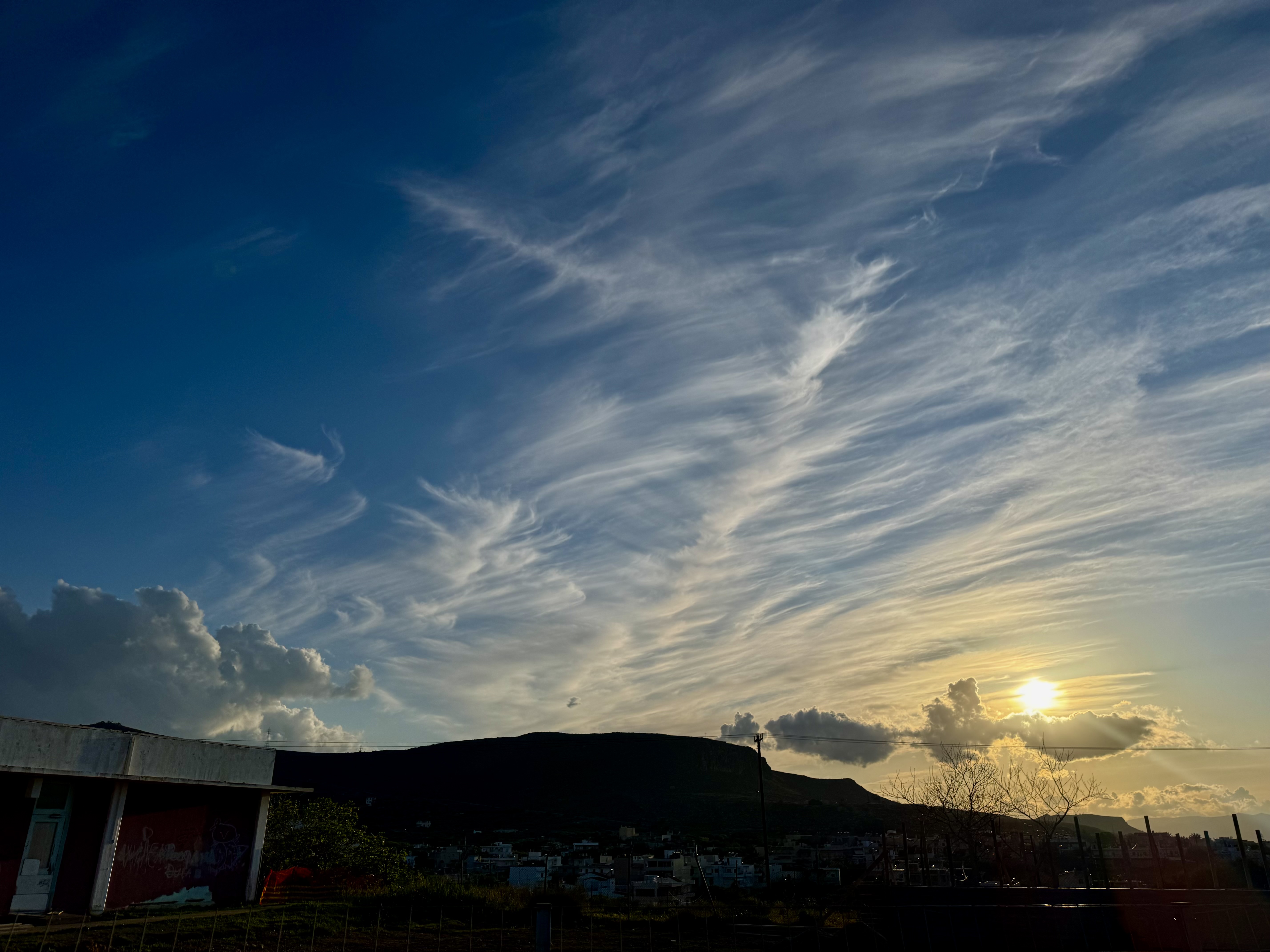 | 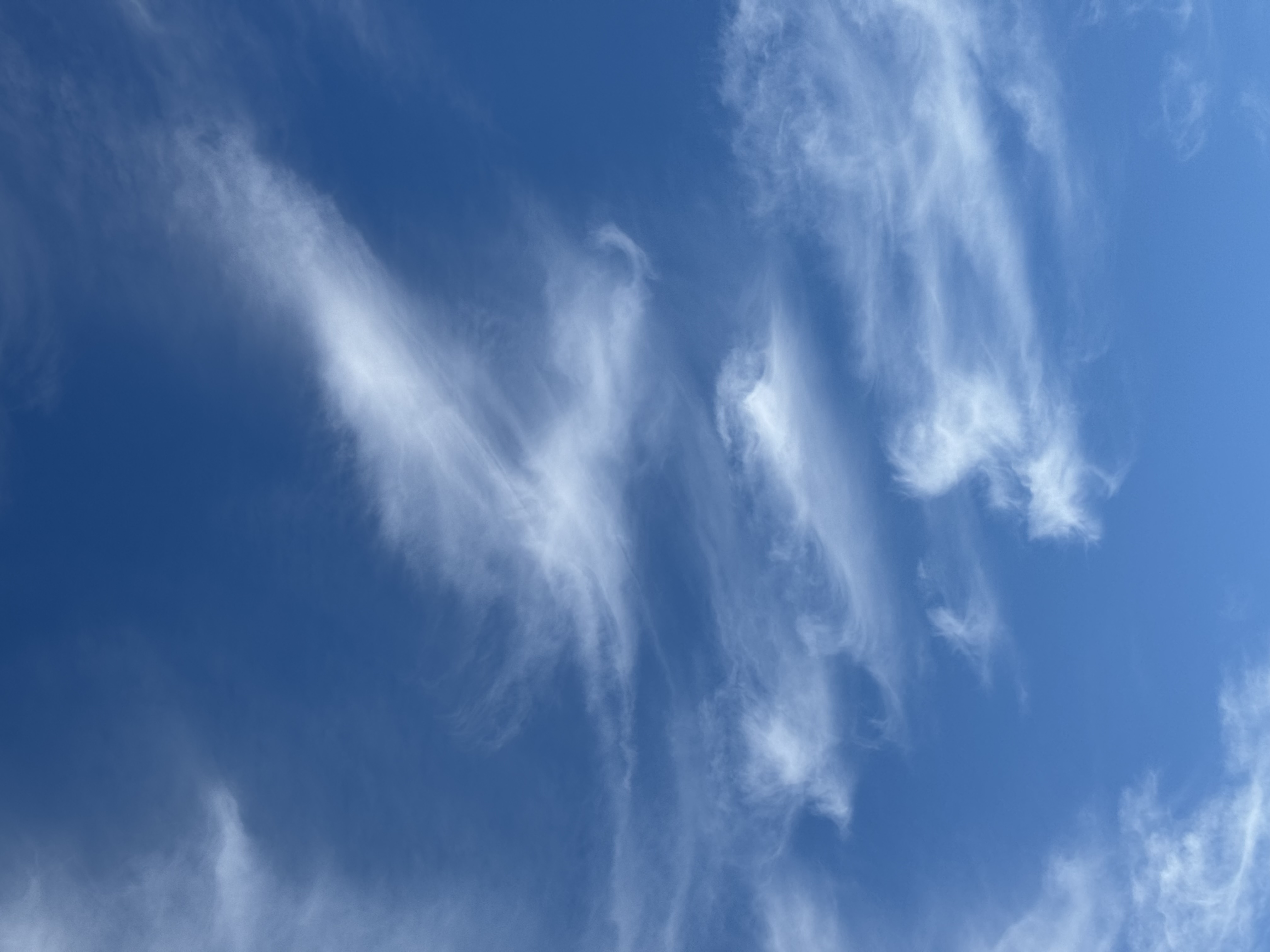 |
|---|
We continued learning about what f is
f stands for the focal ratio—a measure of how wide the lens aperture is relative to its focal length.
f-number = focal length / aperture diameter
What does it mean?
A lower f-number (e.g. f/1.8) means a wider aperture → more light, shallower depth of field (blurry background).
A higher f-number (e.g. f/16) means a narrower aperture → less light, deeper depth of field (more in focus).
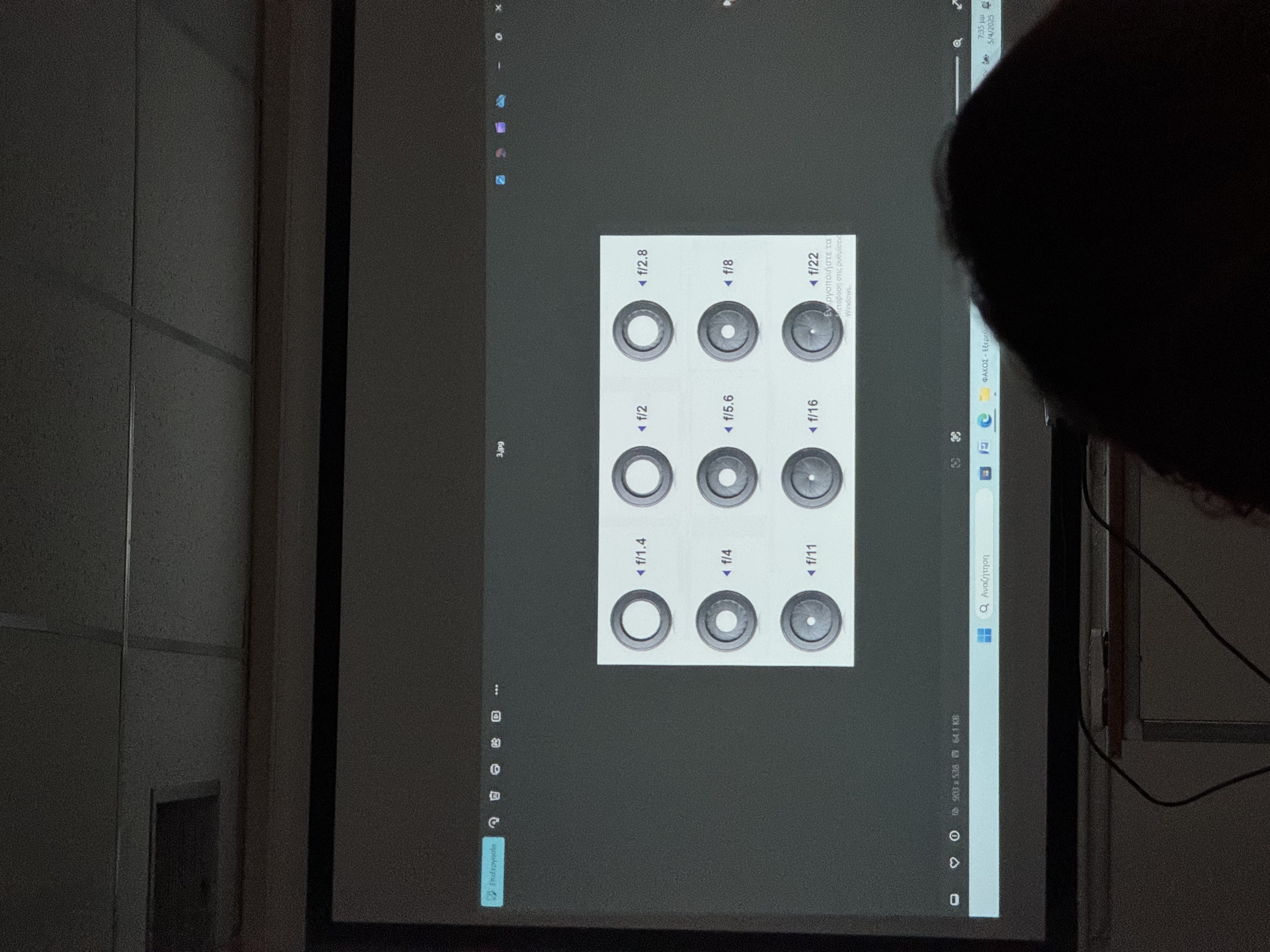 | 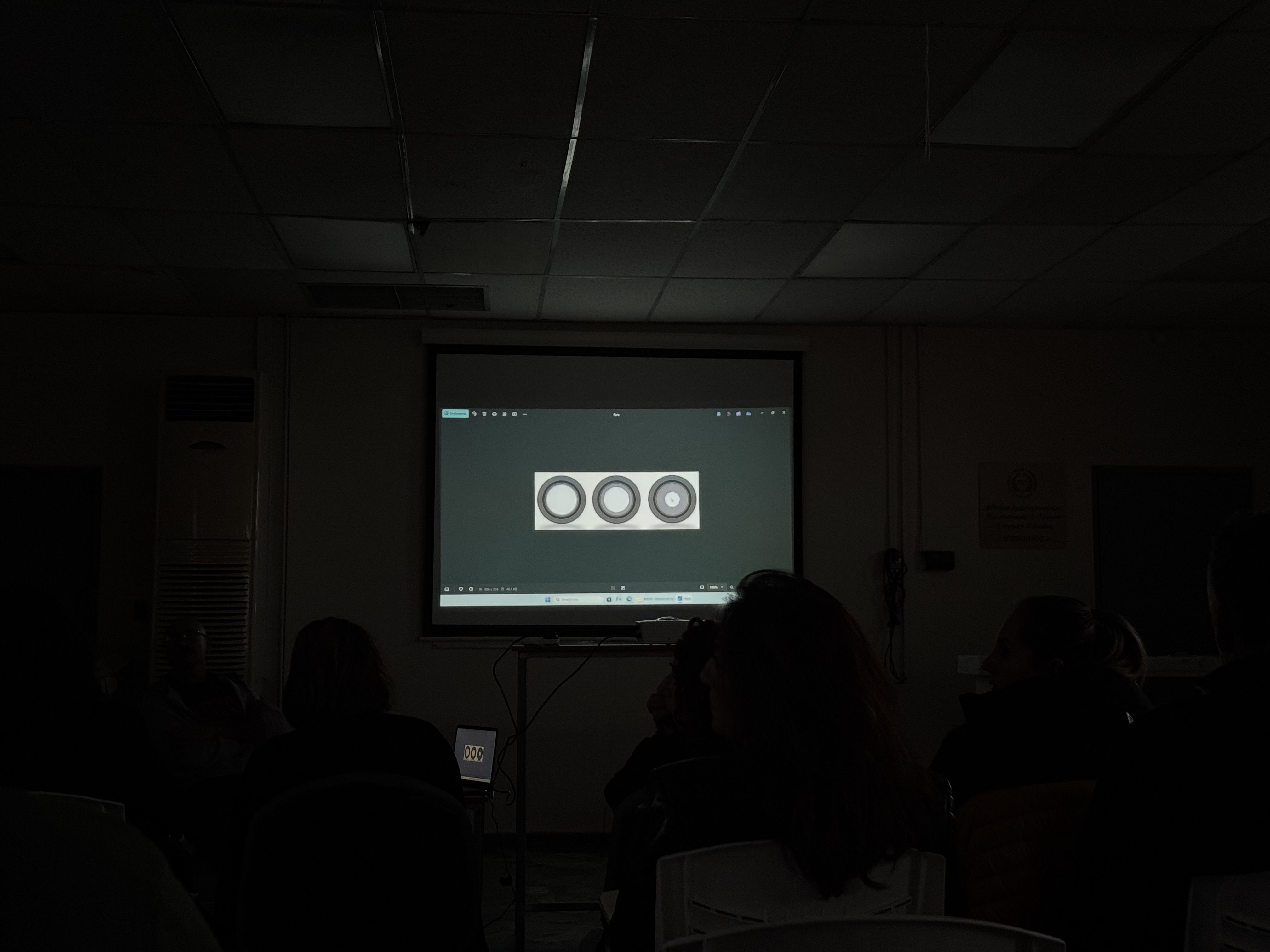 | 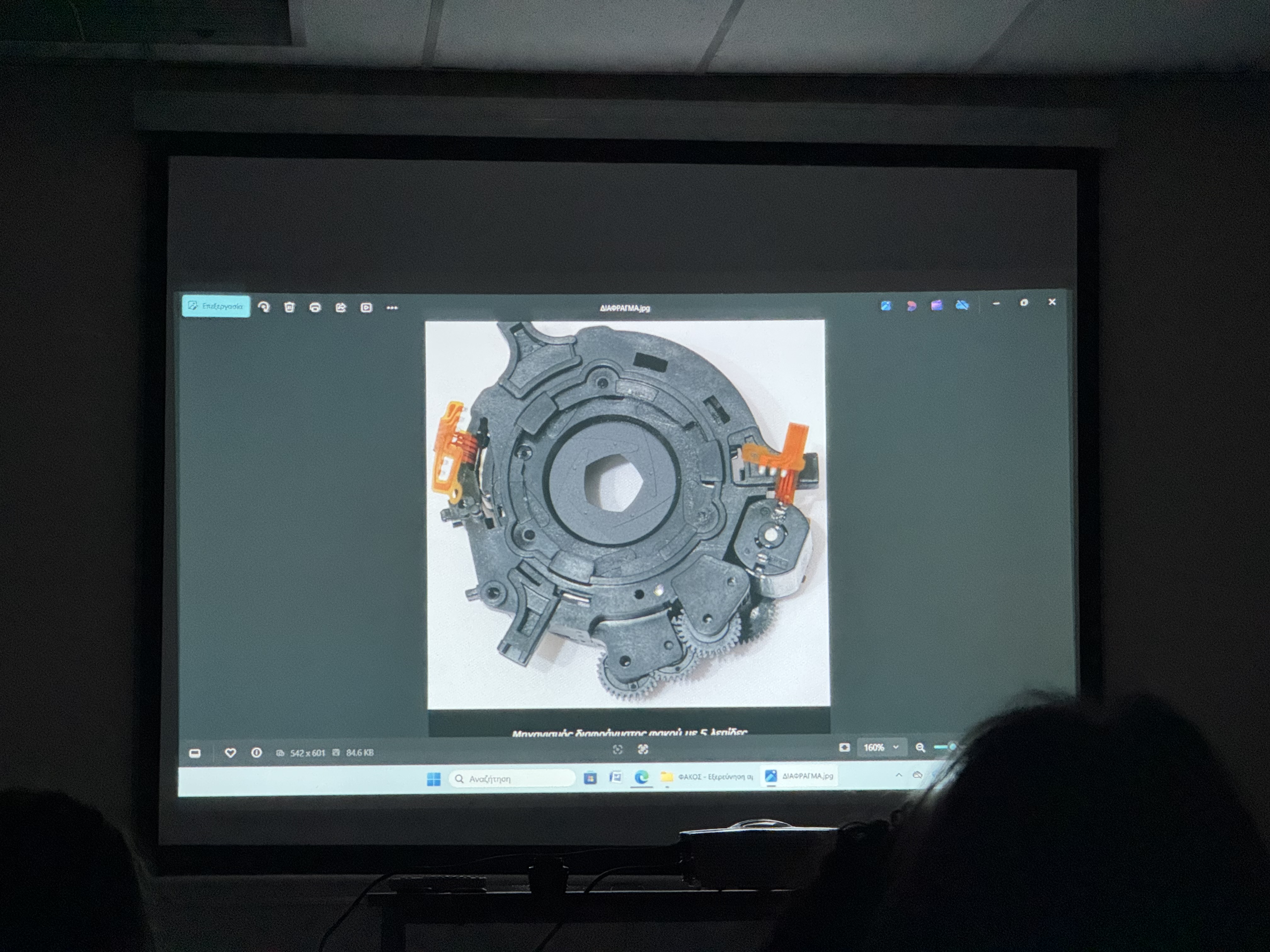 |
|---|
We then learnt more about the ancient Greek philosopher Socrates.
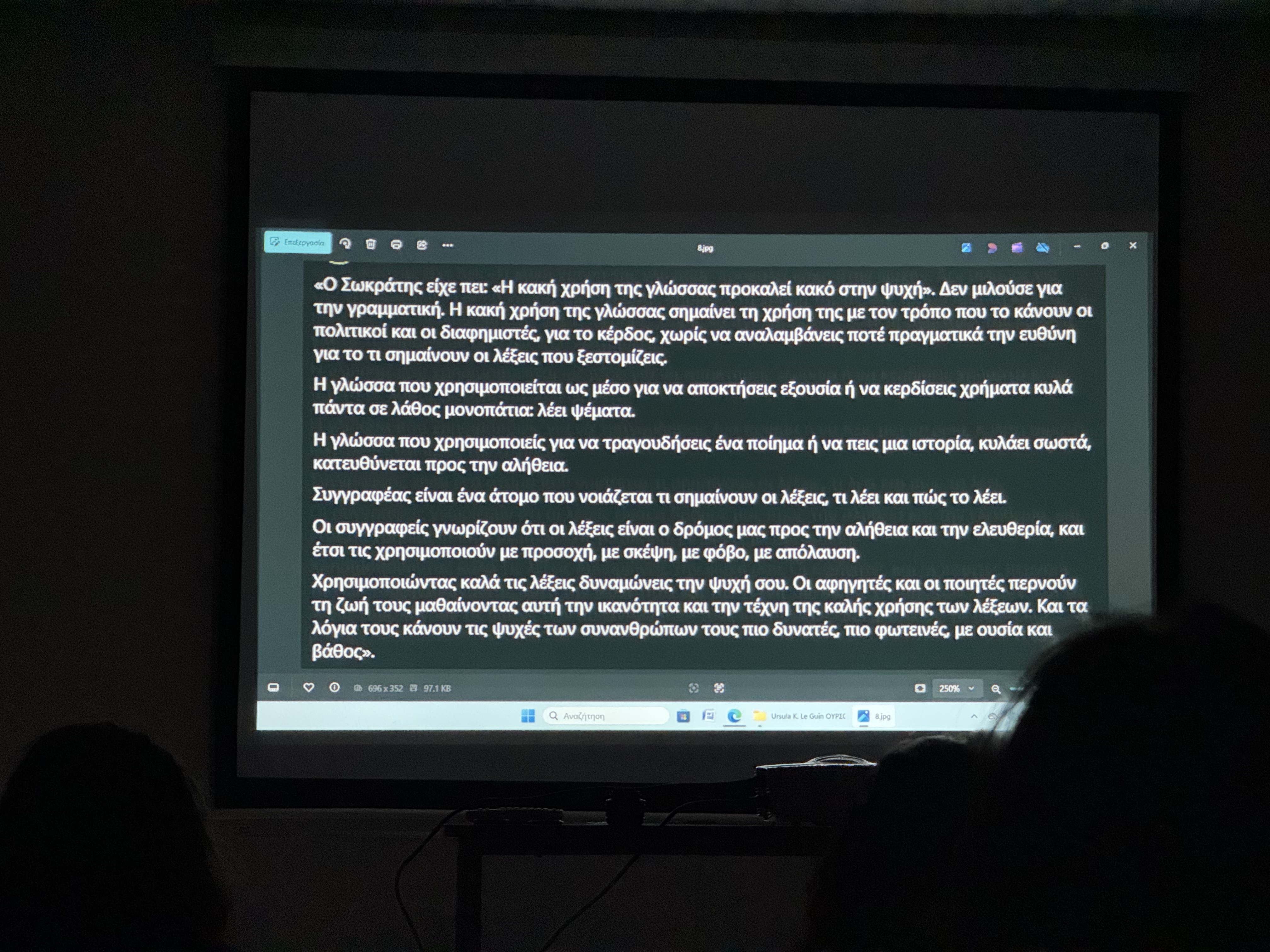
Simply put:
Socrates believed that when we speak badly—lie, insult, flatter—we’re not just hurting others, but poisoning our own soul. He saw moral integrity and truth in speech as essential to keeping the soul healthy.
We discussed a lot before seeing some photos which we commented on.
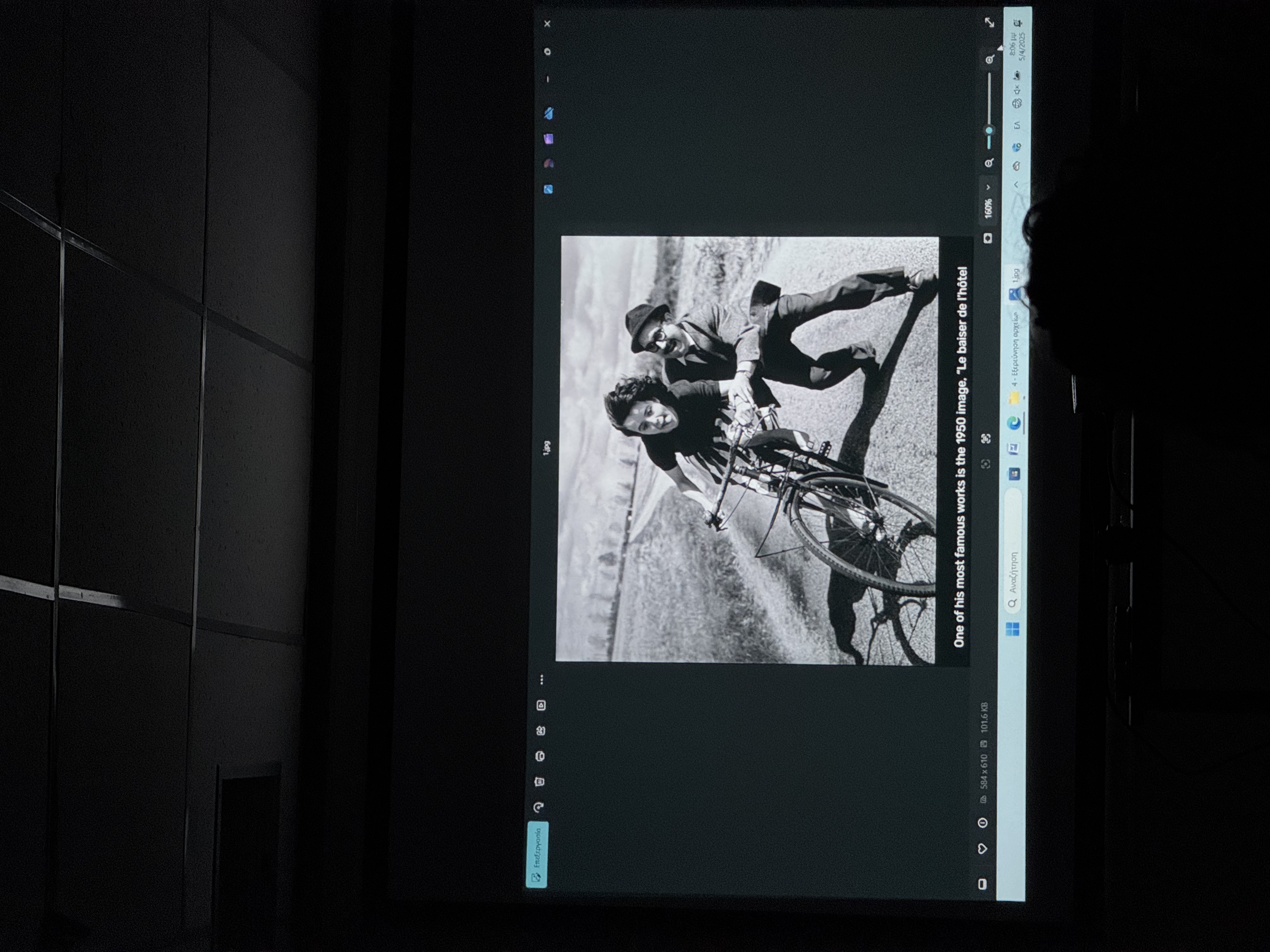 | 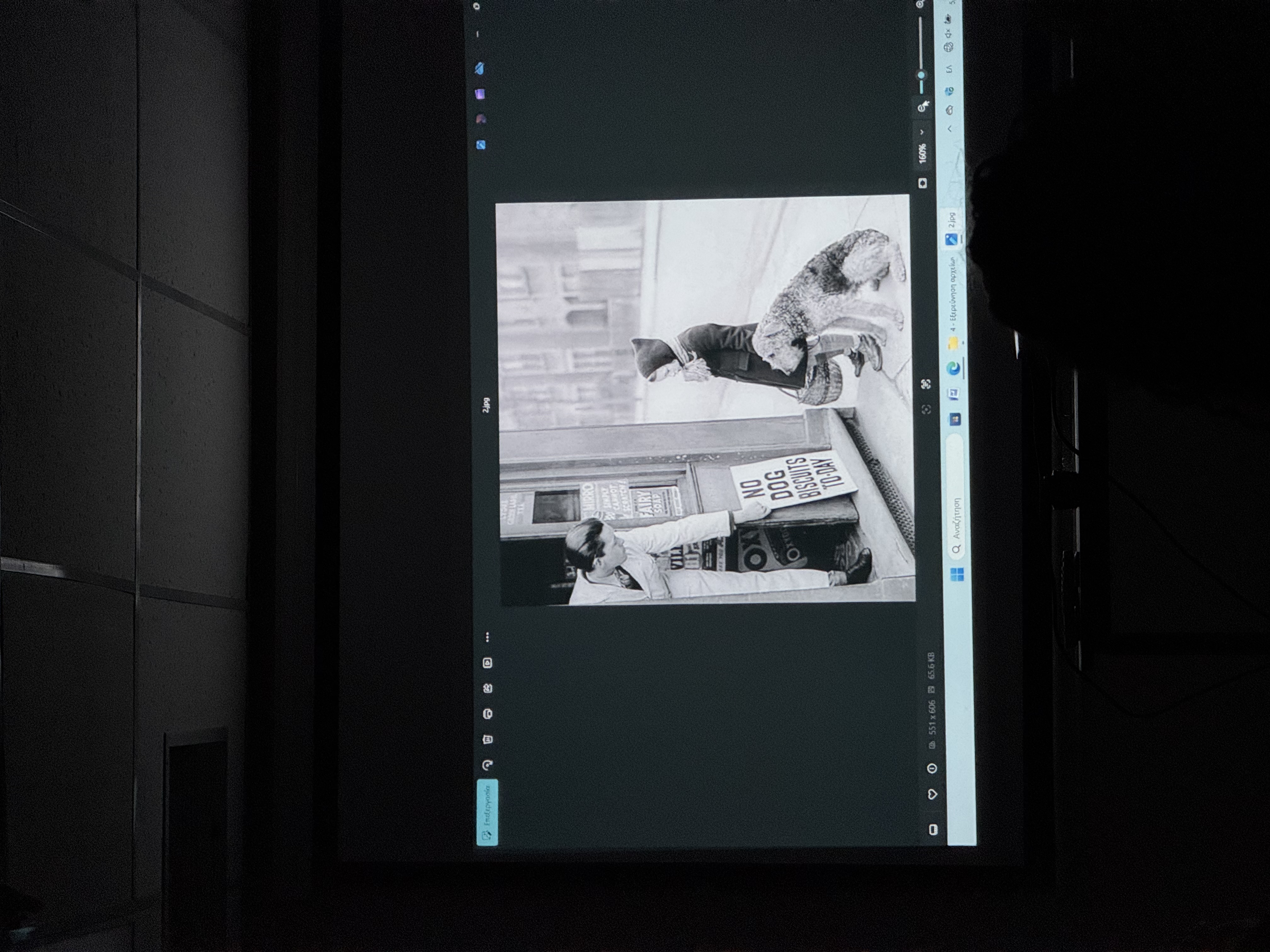 | 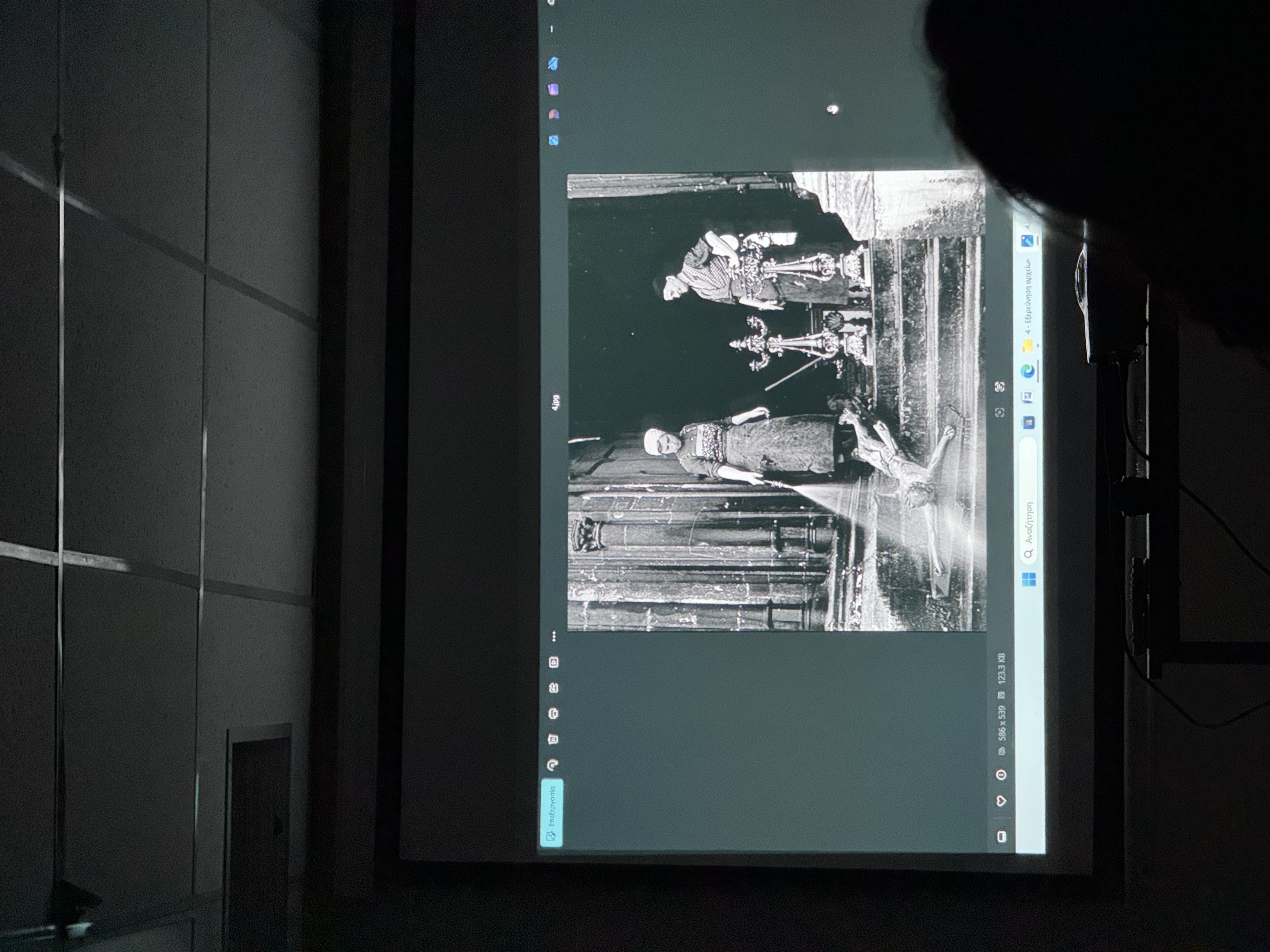 | 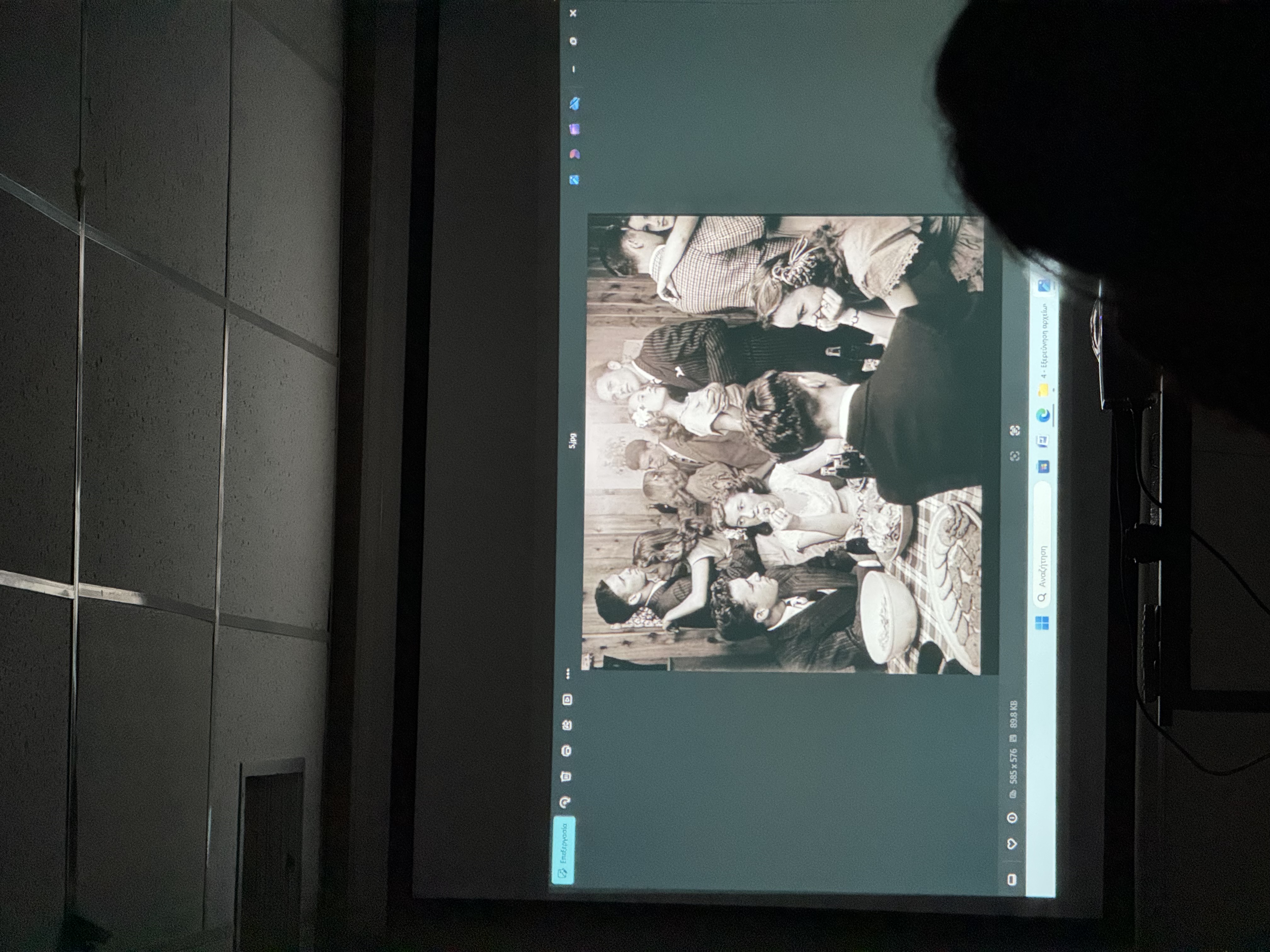 |
|---|
Then we saw some more student photos and when I thought that he again had missed my emails, I heard him asking if I was there!
He left some photos of my photographer friend, @tbouras (I so hope he comes back here again)
We saw some of his photos and discussed how the photographer who is a professional has highlighted his work and has used some extra lightning for his photos.
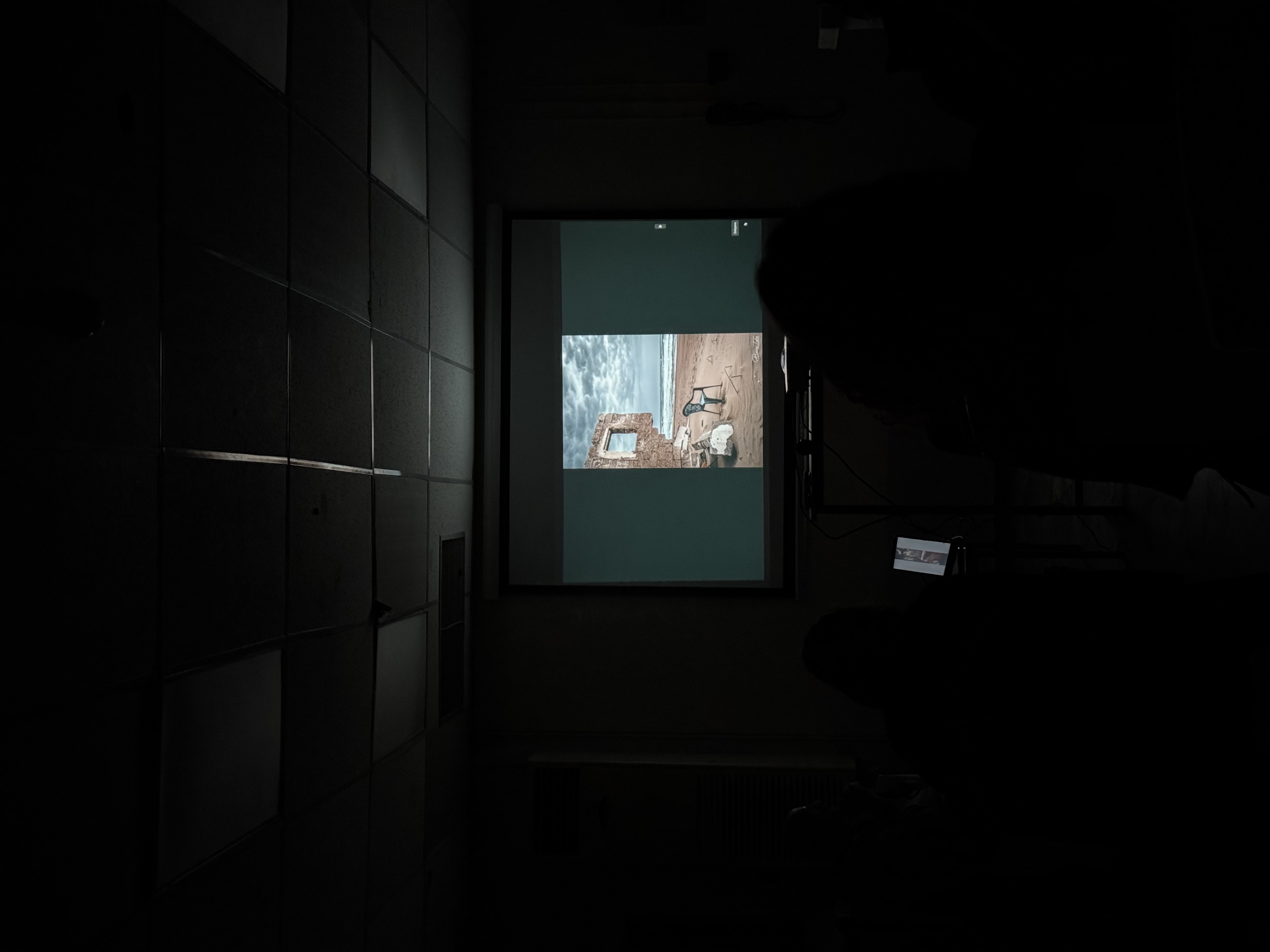 | 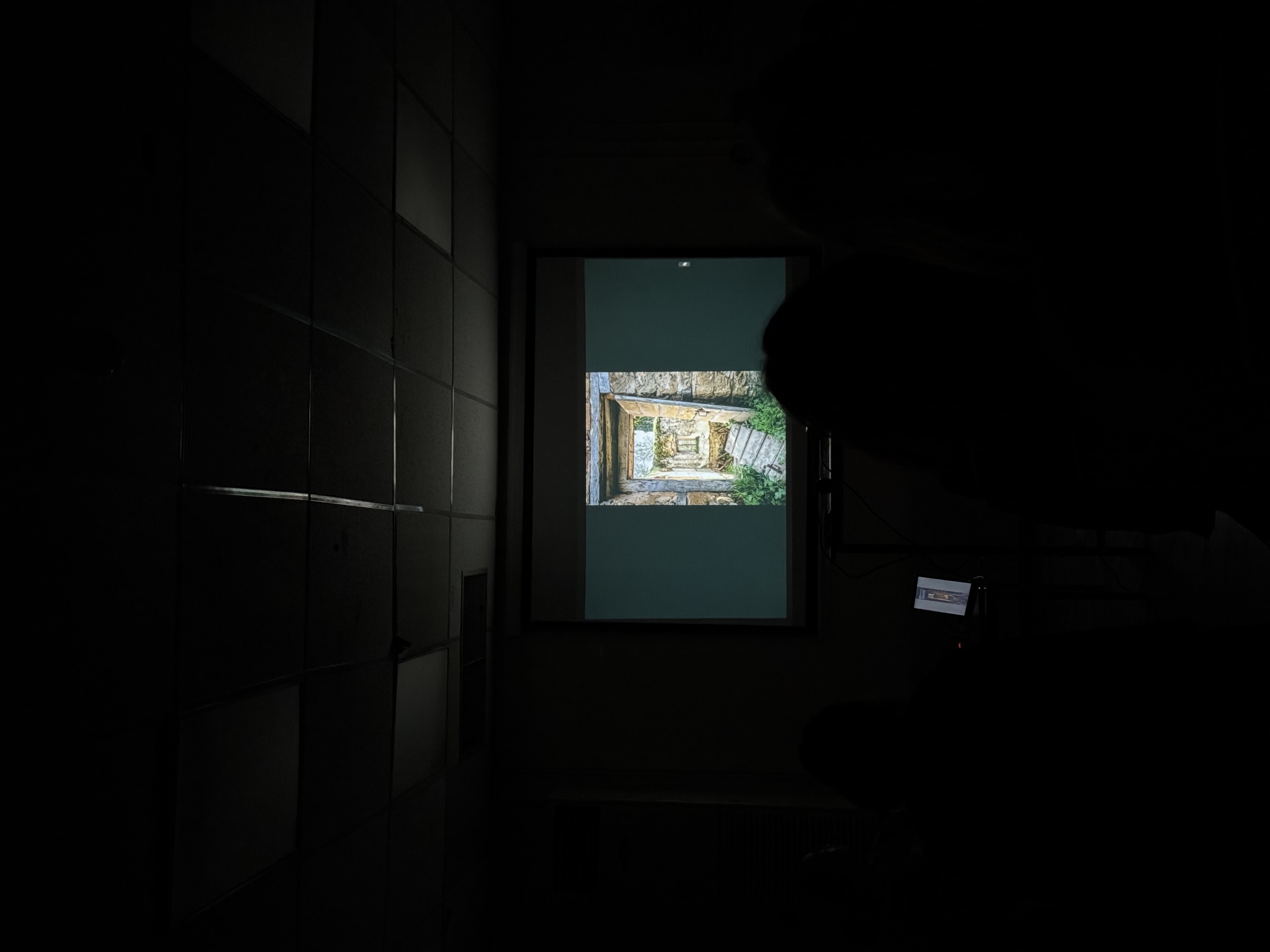 | 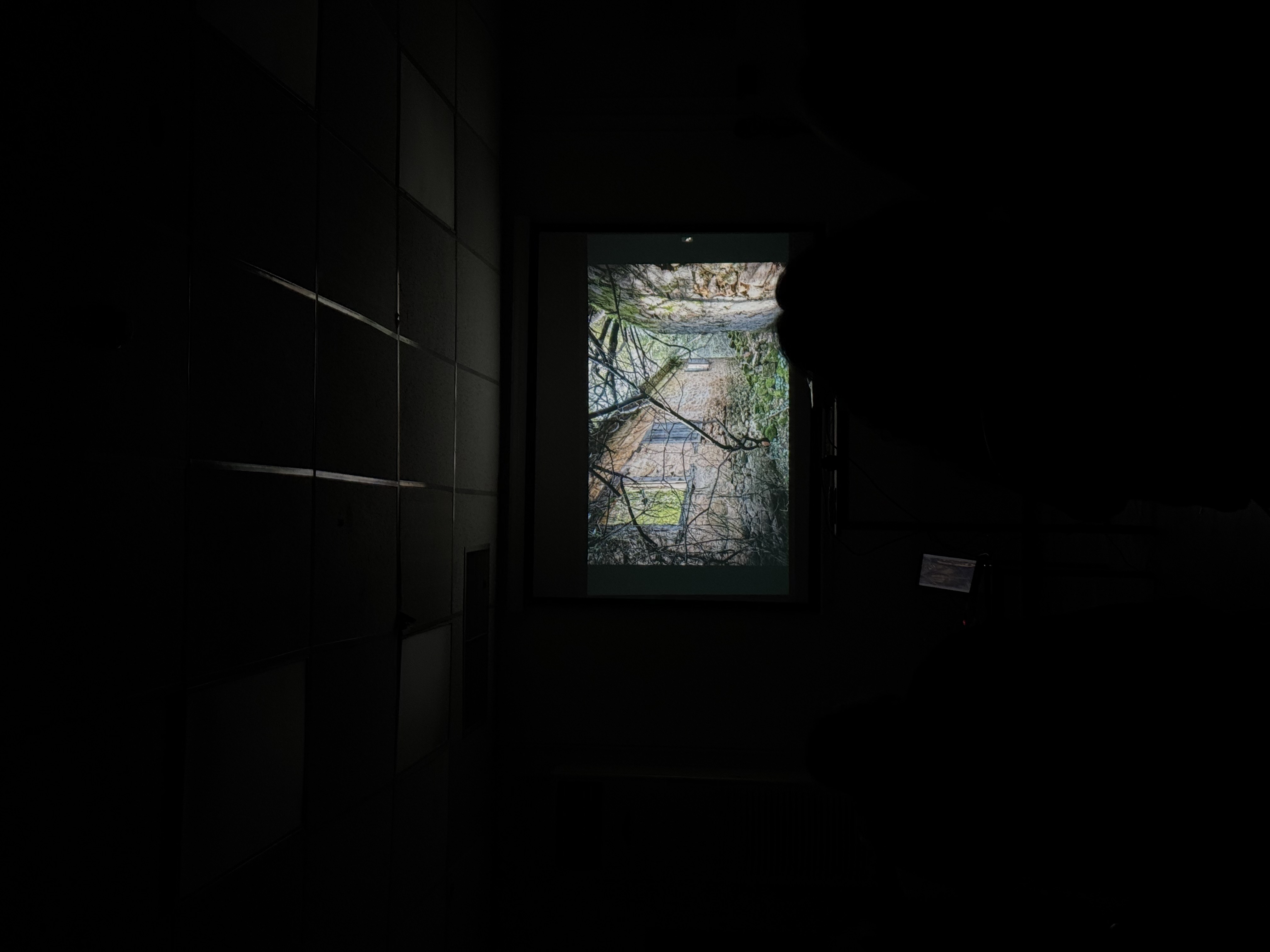 |
|---|
Then we saw my photos and discussed about them, but because everyone was looking at me I could not take more shots.
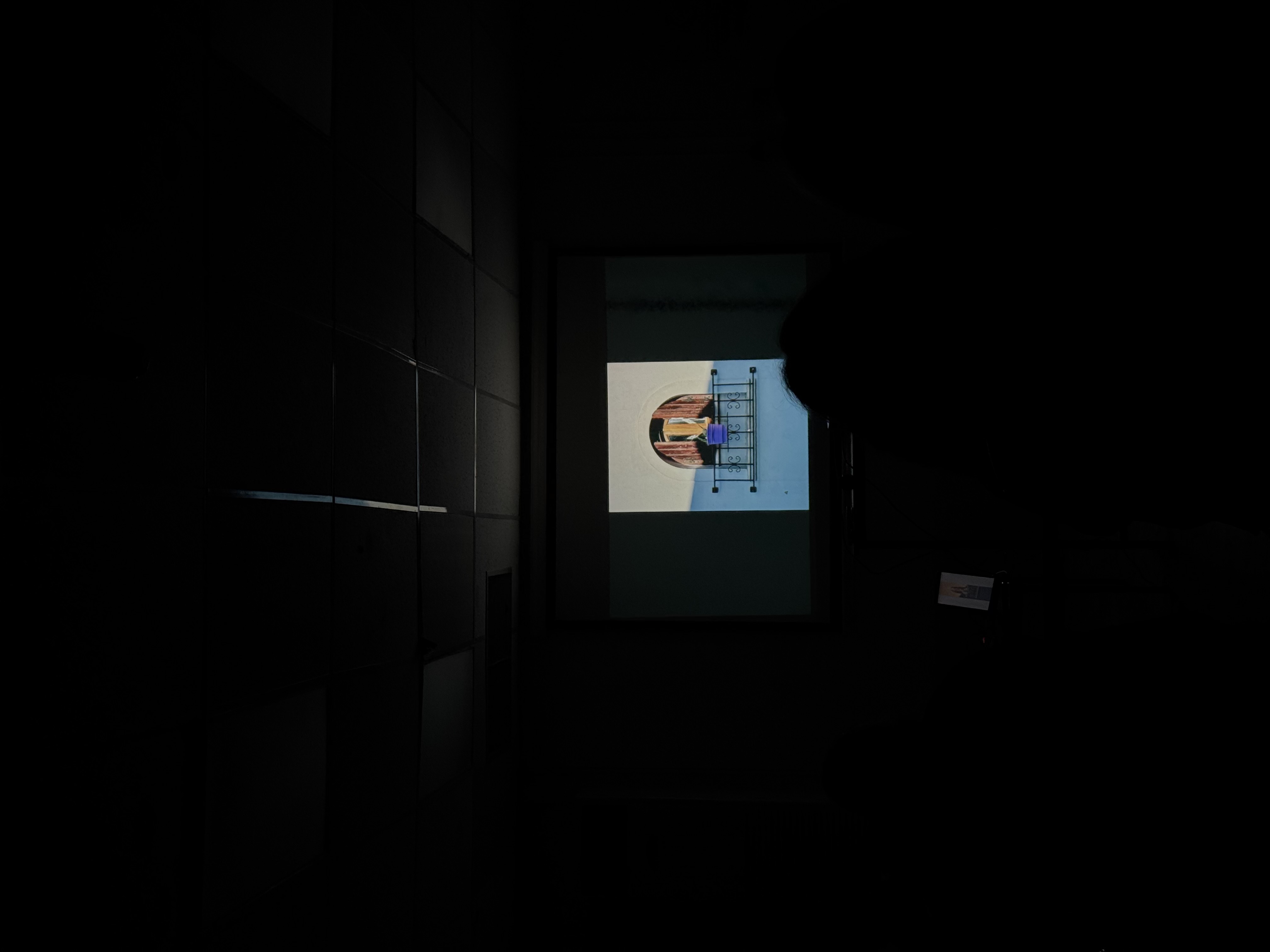
Now to the good part ..
We will probably make a photography exhibition next year so that makes me super excited!!
I hope that you learnt something new today, do let me know if you have any questions!
View or trade
LOHtokens.@katerinaramm, You have received 1.0000 LOH for posting to Ladies of Hive.
We believe that you should be rewarded for the time and effort spent in creating articles. The goal is to encourage token holders to accumulate and hodl LOH tokens over a long period of time.
Thank you!
Thanks for sharing your informative experience of taking this vital lecture, Coach! I will reblog this post so more people can learn something valuable.
Thank you!
!GIFU
The photos came out very nice. Let me take the chance to wish you best of luck of exhibition next year, it's a very cool idea
Thanks, I hope I will make it till then!
i trust that you will 🙏 Happy Thursday
I think cameras and lens nowadays are for who has photo passion or does it for work, an average person will just use the phone
This is true
Now that’s some educating there
We are not just taking pictures but learning the intricacies behind the scenes
I like it
A lot of photography lovers would find this interesting
Reblogged
Thank you so much!
!LADY
This post is especially for those who want to do photography, so here a lot of good details have been given about camera lenses. I also like it a lot, reading such posts and increasing my knowledge.
So happy to know that!
!GIFU
I love how you want to take your photography skills to the next level
I wish you the very best